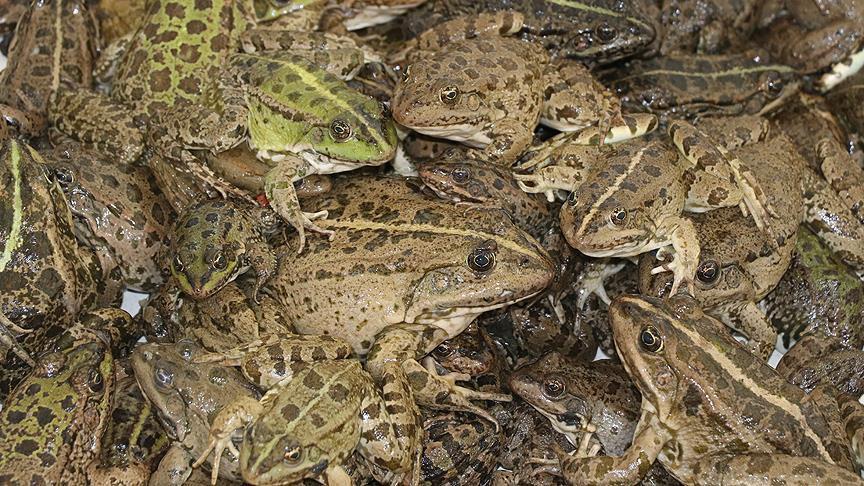
Water frogs are in danger of becoming regionally extinct in parts of Turkey, where they are native, due to over-harvesting for human consumption, scientists have warned, according to the British daily Independent.
A study has shown the population of Anatolian water frogs fell by around 20 per cent each year between 2013 and 2015 in Ceyhan and Seyhan deltas in the southern province of Adana.
Researchers from Ege University, Middle East Technical University, Stony Brook University and the Turkish government, predicted a 90-per-cent chance the frogs would be wiped out in the south-central Çukurova region by 2050.
If harvesting trends continue, they could even be extinct by 2032, according to the newspaper.
The frog harvesting industry in Turkey, which is about 40 years old, is worth nearly $4 million each year. More than 36 million of the amphibians are exported from Turkey annually, mainly to countries in the EU and the U.S.
The amphibians are widely eaten in east and southeast Asia, as well as in the U.S. and France.
A joint investigation by the Moving Animals group and The Independent in February found that live frogs were being crammed into tubs and sold in street markets in Vietnam.
The new study, published in conservation journal Oryx, said Turkey occupied a precarious position in an “extinction domino” line, in which the pressure to supply frogs could threaten other populations that are currently stable.
Kerim Çicek, one of the authors, told Independent that declining amphibian populations worldwide could have an irreversible and destructive impact on both natural ecosystems and human welfare.
“They are integral components of many ecosystems, often constituting the highest fraction of vertebrate biomass,” Çiçek noted.
“Unfortunately, the literature on declining amphibian populations and its conservation has increased exponentially each year. We must stop the alarming decline of amphibians before it’s too late,” he added.
The average harvest from the Ceyhan and Seyhan delta region is about 327 tonnes annually about 17 million frogs.
The authors also suggested the Turkish government encourage more people to take up frog farming instead of harvesting from wild populations.